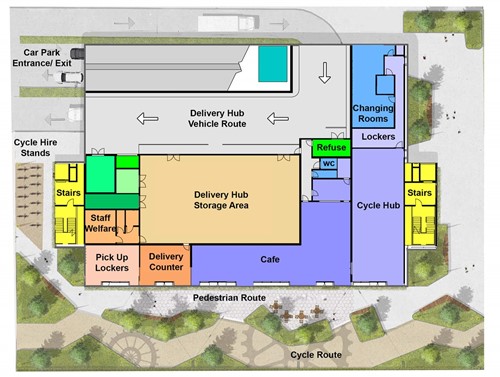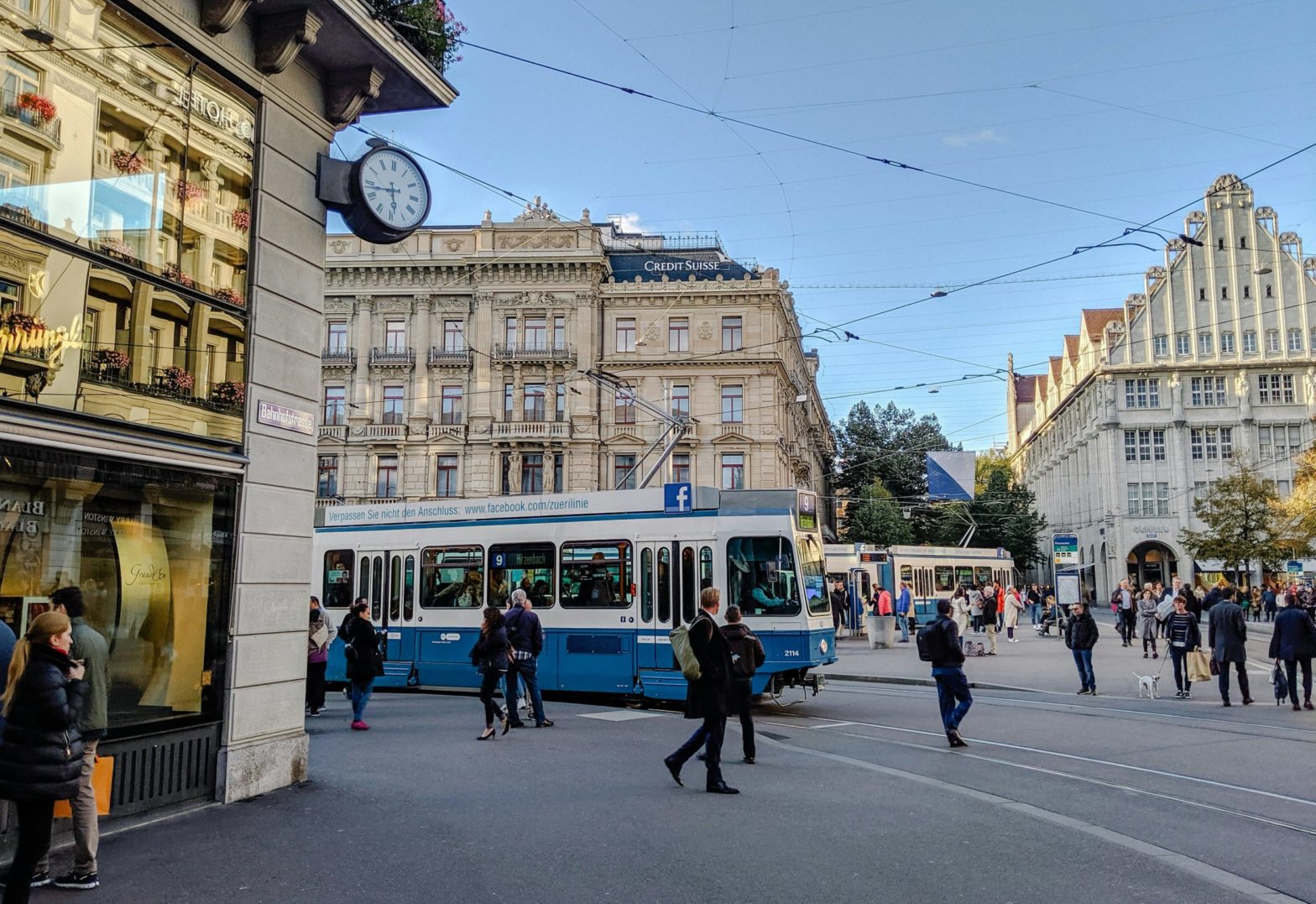
Photo: McrLife
Manchester mobility hub ‘not another car park’, says council leader
09 June 2021
by Christopher Carey
Plans have been submitted for a new ‘urban mobility hub’ in Manchester that promises “to prioritise streets for people”.
The hub, expected to be completed by the end of 2023, will include a car-share club, e-bike scheme, 150 visitor cycle parking spaces and charging facilities to help encourage the shift away from petrol and diesel cars.
The application, submitted by the Manchester Life development company – a joint venture between Manchester City Council and the Abu Dhabi United Group (ADUG) – claims the project will support clean air and climate change priorities in the Ancoats neighbourhood.
It also says the hub will reduce neighbourhood vehicle movements by 1,200 kilometres per day and provide 102 electric vehicle (EV) charge points, with capacity to convert 408 parking spaces to EV as demand grows.
But the opposition Liberal Democrats party has criticised the design put forward, saying it fails to include key features of a mobility hub – such as links to public transport or other modes of travel like cycle lanes – and labelled it a multi-storey car park with ‘a glossy spin’.
Not another car park
Sir Richard Leese, leader of Manchester City Council, denied this claim.
“The Hub is a UK first. Anyone who thinks this is ‘just another car park’ is massively missing the point.
“The purpose of a car park is to park cars. The purpose of the Hub is to help transform the neighbourhood over time, pioneering new ways of getting around and encouraging people to choose greener and healthier transport options. This is about thinking and acting differently.
“We have to recognise that many people who choose to live in the city centre require cars for their daily life and work. But we do want to be very deliberate in making sustainable transport changes easier and more attractive – encouraging the use of electric vehicles, cycles and other forms of active travel while supporting the transition away from petrol and diesel.”

The proposals also include a neighbourhood delivery depot that would receive local deliveries and parcels to be collected by residents or taken to individual developments via small electric vans or cargo bikes.
Mobility hubs have popped up in cities across Europe and North America in recent years, and while there is no universal definition of what actually constitutes a ‘hub’, the majority are situated near, or include links to, key public transit arteries.
Manchester 2040
In March, Manchester set out its new transport strategy, which plans to deliver “world-class connections that support long-term sustainable economic growth and access to opportunity for all”.
The strategy aims to have 50 percent of all journeys in Greater Manchester made by walking, cycling and public transport by 2040.
Currently only 39 percent of journeys are made using active or sustainable travel.
Image: McrLife











